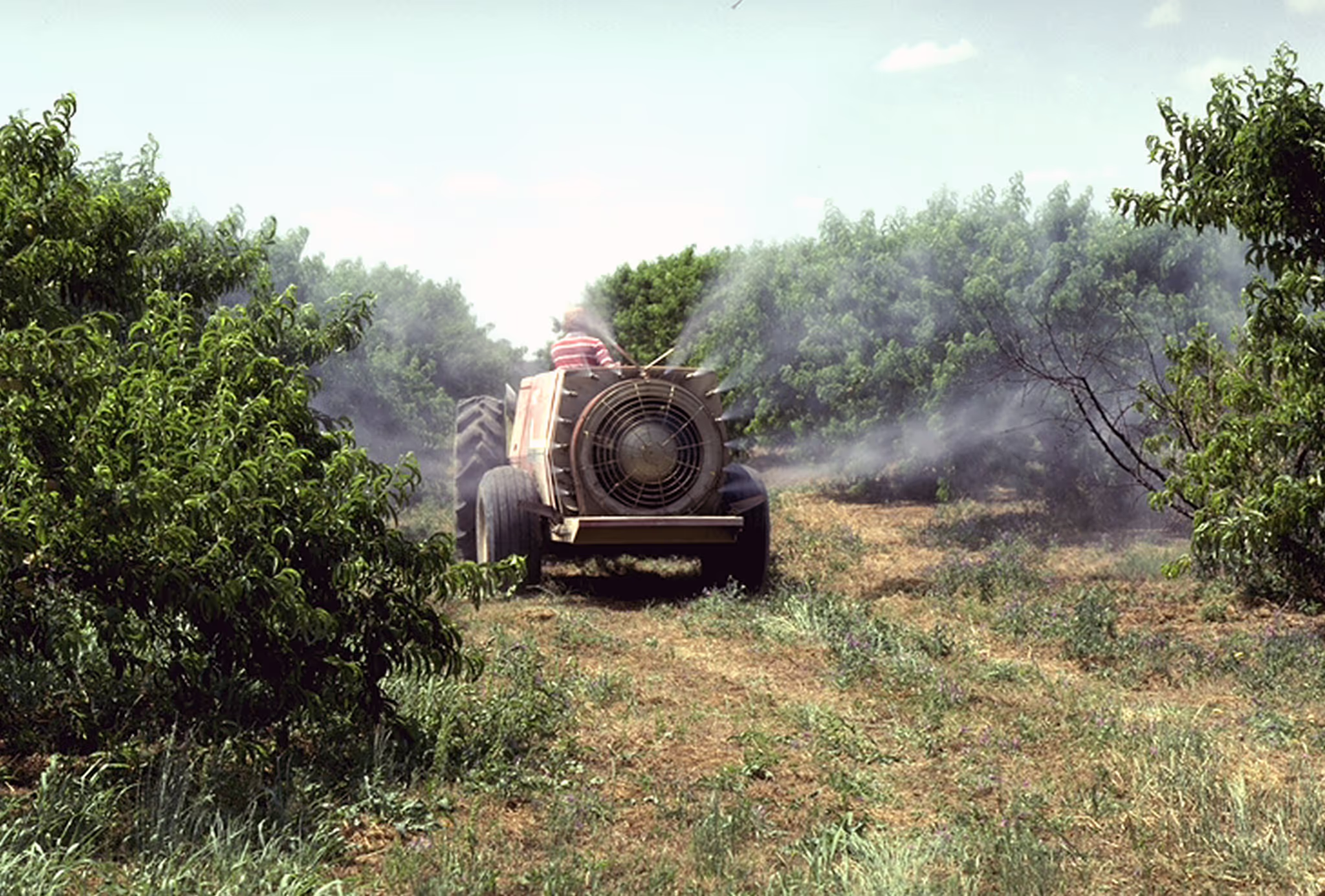
Freedom from Pesticides, a three-part online event series
Exploring key issues around pesticides, drawing on the insights of experts and experiences of farmers, farm workers, and affected communities from around the world.
By
Jan Urhahn
A plethora of studies provides evidence that pesticide use in agriculture is hazardous not only to the health of people who consume pesticide-laden produce, but also to the health of farm workers, farmers, and the surrounding environment. Toxic chemicals can cause irreversible damage to the soil, wildlife, and waterways, as seen in many communities around the world.
Yet pesticides remain a multi-billion-dollar business. The global agrochemical industry, led by BASF, Bayer, and Syngenta, who market their products as “crop protection products”, has been found by civil society organizations and some regulatory authorities to pose serious health hazards. Nevertheless, these big agrochemical corporations are still able to sell their products with little to no restrictions in countries in the Global South such as Brazil, India, and South Africa.
Why does commercial industrial agriculture require the use of pesticides in the first place and how has the agricultural system changed over time? What alternatives exist to the use of pesticides in agricultural production and how do we maintain sufficiently high crop yields? What are the consequences of the use of highly hazardous pesticides for farmers and farm workers? How would highly hazardous pesticides need to be regulated and how could we ban the most hazardous ones? In our upcoming online event series, we will discuss answers to these and many other questions with international experts.
This three-part online event series organized by the Rosa Luxemburg Stiftung aims to explore key issues around pesticides, drawing on the insights of experts and experiences of farmers, farm workers, and affected communities from around the world. Each online event will be held in English and Spanish with simultaneous interpretation.

Rethinking Agriculture: Detoxifying Our Food and Agriculture
Date and time: Wednesday, 4 May 2022, 14h00
Why does agriculture require the use of pesticides? This event unpacks the model of industrial agriculture and why it necessitates the use of chemical inputs such as artificial fertilizer and pesticides. Nonetheless, there are wide-ranging agricultural practices being employed around the world that rely on alternatives. What would a transition to pesticide-free agriculture look like, and with what implications for yields? What are these alternatives and in what ways can this be broadly replicated by diverse farming communities?
Speakers:
Paul John Dizon, Nagkahiusang Mamumuo sa Suyafa Farm (NAMASUFA), Philippines
Santiago Sarandón, Sociedad Argentina de Agroecología (SAAE) and National University of La Plata, Argentina
Angelika Hilbeck, ETH Zürich, Switzerland
Dinesh Abrol, All India Peoples Science Network (AIPSN), India
Moderation: Refiloe Joala, Rosa Luxemburg Stiftung Southern Africa and Patricia Lizarraga, Rosa Luxemburg Stiftung Southern Cone
Registration required: https://us06web.zoom.us/webinar/register/WN_TdJzLiT8SRufhRJg29hMtg
The online event will be held in English and Spanish with simultaneous interpretation.
The event is part of the three-part online event series “Freedom from Pesticides” organized by the Rosa Luxemburg Stiftung. Further events: “The Human and Environmental Costs of Pesticide Use” on 8 June and “Insufficient Regulation and Double Standards in the Pesticide Sector” on 6 July.

The Human and Environmental Costs of Pesticide Use
Date and time: Wednesday, 8 June 2022, 14h00
Pesticide giants maintain a particular and narrow scientific narrative on the impacts of pesticides, supported by a hefty marketing and PR budget. People on the ground, however, see and experience things differently. This event breaks down the impacts of pesticides on human health and the natural environment by presenting experiences from the ground with a particular focus on women. What are the real impacts of pesticides, and who are the direct victims of pesticide use? How can we challenge the hegemonic science that downplays the impacts of pesticides on health and affirm the voices of the affected?
Speakers:
Damian Verseñazzi, Faculty of Medicine Sciences, National University of Rosario, Argentina
Colette Solomon, Women on Farms Project, South Africa
Nining Elitos, Kongres Aliansi Serikat Buruh Indonesia (KASBI), Indonesia
Moderation: Ayi Kaario, Rosa Luxemburg Stiftung Southeast Asia
Registration required: https://us06web.zoom.us/webinar/register/WN_VsB9puEJSUm2xFvTxS6eIA
The online event will beheld in English and Spanish with simultaneous interpretation.
The event is part of the three-part online event series, “Freedom from Pesticides”, organized by the Rosa Luxemburg Stiftung. Further event: “Insufficient Regulation and Double Standards in the Pesticide Sector” on 6 July.

Insufficient Regulation and Double Standards in the Pesticide Sector
Date and time: Wednesday, 6 July 2022, 14h00
To date, only roughly 3.3 percent of the pesticide active ingredients used and traded worldwide are subject to binding regulation. Different standards in different countries enable companies to switch their products to countries with weaker regulations if, for example, they are no longer permitted in the EU. Almost 60 percent of highly hazardous pesticides are sold in “developing and emerging countries”. Why are the pesticides and active ingredients which are banned in certain parts of the world still sold elsewhere? This event explores the pesticide regulation regime in different regions and around the world. What important agreements are currently in place to regulate pesticide trade and use? How can people campaign for just regulations?
Speakers:
Lis García, Base Is, Paraguay
Sarojeni Rengam, Pesticide Action Network Asia Pasific (PANAP), Malaysia
Lena Luig, INKOTA, Germany
tbc, Campaña Permanente contra los agrotóxicos y por la vida, Brazil
Moderation: Jan Urhahn, Rosa Luxemburg Stiftung Southern Africa and Tauqueer al Sabri, Rosa Luxemburg Stiftung South Asia
Registration required: https://us06web.zoom.us/webinar/register/WN_EhD-B1qmSR2jL2uCkTJDFQ
The online event will beheld in English and Spanish with simultaneous interpretation.
The event is part of the three-part online event series “Freedom from Pesticides” organized by the Rosa Luxemburg Stiftung.
Photograph by U.S. Department of Agriculture, via Flickr.



.png)

